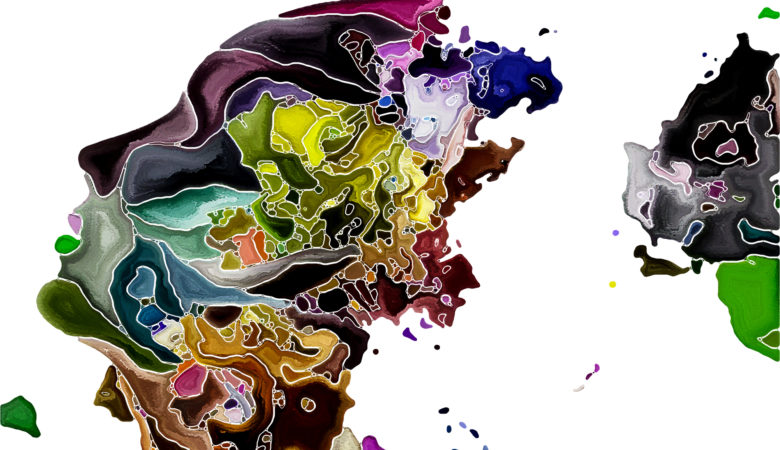Psychedelics Could Hold the Key to Alleviating Depression and Anxiety

Feeling depressed or anxious lately? It’s hard to read the news without feeling down: although the pandemic is mostly behind us, there are plenty of other global issues to contend with. In fact, depression and anxiety rates shot up a remarkable 25 percent during the pandemic and beyond.
Many people suffer from situational depression and anxiety, which can be relieved through time, talk therapy and conventional antidepressant or anti-anxiety medications. For people with treatment-resistant depression and anxiety, however, there has been little hope of improvement.
Until now, that is. The scientific community is increasingly turning to psychedelics as a potential solution for severe depression and anxiety. Certain treatments promise a brain “reset,” allowing patients to finally experience relief.
Treatment-resistant depression and anxiety
If you’ve been diagnosed with depression and/or anxiety, there are plenty of traditional modalities to treat these conditions. Talk therapy—including cognitive behavioral therapy, which teaches people to look past the cognitive distortions their brains create—is one of the most popular methods.
Other people turn to antidepressants and anti-anxiety medication to help relieve their symptoms. Depending on the type of drug, these prescriptions can help alter brain chemistry to alleviate anxiety and depression.
Meditation, yoga, CBD, deep breathing and lifestyle changes are also good ways to manage these conditions. (How often have you heard someone say, “Just go for a walk, you’ll feel better?”) However, certain types of depression and anxiety don’t respond to these methods.
This is called treatment-resistant depression and/or anxiety. Traditional methods of coping with mood disorders are ineffective. For years, people thought that there was no hope for relief…until recently.
Psychedelics and mental health
The New York Times noted that “Oregon is legalizing mushrooms. Ketamine can be delivered to your home. People are microdosing LSD to treat pandemic-related anxiety and Wall Street is pouring billions into companies that sell mind-altering drugs.”
Psychedelics have a bad rap, thanks to their association with subversive cultures—not to mention that they’re still illegal under federal law. But now, researchers are finding that controlled doses of certain psychedelics, paired with talk therapy, can help people finally conquer their treatment-resistant depression and anxiety.
As of March 2021, scientists were about to begin using DMT to treat people with moderate to severe depression in a clinical trial. They believe that the treatment will have longer-lasting effects than traditional antidepressants. Better yet, the results are usually immediate. For people who have been suffering for years or even decades, this is an exciting proposition.
Psychedelics don’t have the same addictive qualities as opiates, amphetamines and other federally-banned drugs. They activate a different part of the brain, one that allow people to process difficult emotions and flashbacks (such as PTSD flashbacks) without the kind of conscious distress that makes their disorders so difficult to treat. The Times quoted Katharine Neill Harris, a drug policy researcher at Rice University in Texas: “You’re not likely to overdose on them, but you can have life-changing negative experiences.”
Researchers have studied DMT (the active ingredient in ayahuasca, also known as the “spirit molecule”), LSD, psilocybin, ketamine and MDMA. They are showing promising preliminary results treating depression, anxiety, PTSD, alcoholism, schizophrenia and more. Some drugs, like ketamine, may even encourage neurological regrowth in the prefrontal cortex: atrophy of the prefrontal cortex can cause a number of mental illnesses and mood disorders.
Depending on the drug, the study and the type of treatment offered, a typical appointment is overseen by a psychiatrist or health practitioner. A patient is given a controlled dose of the psychedelic. A mental health professional may remain on hand to monitor the “trip,” or actively guide the patient through processing their difficult emotions. Later, they may engage in talk therapy to help process what the patient experienced, and how they’re feeling now. It seems that most patients experience significant, immediate relief, and only need a few sessions to resolve otherwise treatment-resistant depression, anxiety and other disorders.
Is psychedelic treatment right for you?
The medical and psychological community has a long way to go before this treatment is available to the general public—the federal government probably has something to say about it, too. However, initial results are promising. Patients who have been experiencing traumatic, painful conditions for years are suddenly finding new perspective and peace.
Depending on where you live, psychedelic mental health treatment may already be available. If you’re interested in finding out more, talk to your therapist or medical doctor about services or clinical trials available near you.

